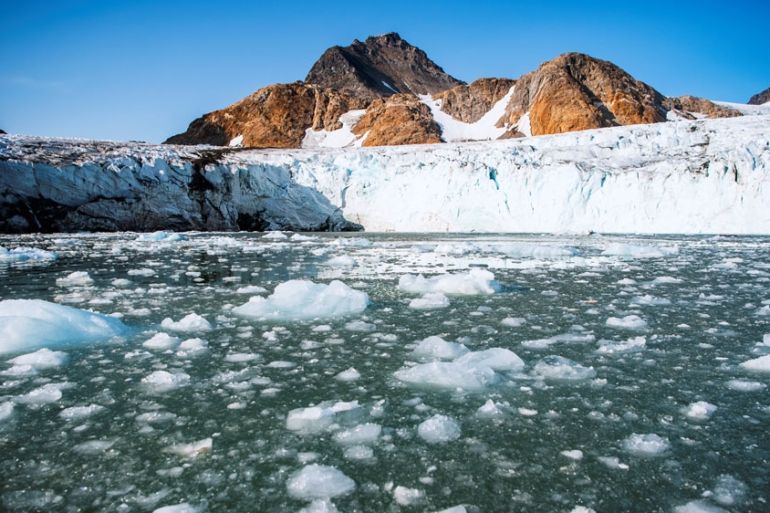Oceans hit highest temperature on record in 2019
The ocean temperature last year was about 0.075 degrees Celsius above the 1981-2010 average.

The world’s oceans last year reached the highest temperature ever recorded, and the rate at which they are warming is speeding up, according to a new study.
The ocean temperature last year was about 0.075 degrees Celsius (0.135 degrees Fahrenheit) above the 1981-2010 average, the research published in the Chinese journal Advances in Atmospheric Sciences said on Tuesday.
Keep reading
list of 3 itemsOceans running out of oxygen, marine life endangered
Oceans heating up faster than expected, set record in 2018
“This measured ocean warming is irrefutable and is further proof of global warming,” said Cheng Lijing, the paper’s lead author and associate professor at the Institute of Atmospheric Physics of the Chinese Academy of Sciences.
“There are no reasonable alternatives aside from the human emissions of heat-trapping gases to explain this heating,” Cheng said.
[7/9] Ocean seems far away from many people but it is linked to everyone: the ocean covers 71% of the Earth surface and contains ~97% of the water on our planet. It is a key component of the climate system (together with atmosphere, land and cryosphere) that we depend on. #SROCC pic.twitter.com/zOQ5j5dDS3
— Lijing Cheng (@Lijing_Cheng) January 14, 2020
The study also found that ocean temperatures are increasing at an accelerating rate – from 1987 to 2019, the rate of warming was four and a half times faster than it was between 1955 and 1986.
“There are many-valued ecosystems in the coastal oceans, for example, coral reefs, seagrass beds, they’re being decimated,” Will Stefan, a climate change expert at the Australian National University told Al Jazeera.
“Also the ocean and atmosphere are linked, so as the oceans warm, it’s changing weather patterns, it’s making droughts more severe, and it’s [also] making rainfalls more severe.”
According to the researchers, people can work to reverse their effect on the climate, but the ocean will take longer to respond than atmospheric and land environments.
“Ocean warming will continue even if the global mean surface temperature can be stabilised at or below 2 degrees Celcius,” Cheng said.
“Therefore, mitigation and adaption are both needed,” he added.
Since 1970, more than 90 percent of global warming heat has gone into the oceans, while less than 4 percent went into land and atmosphere.
|
|